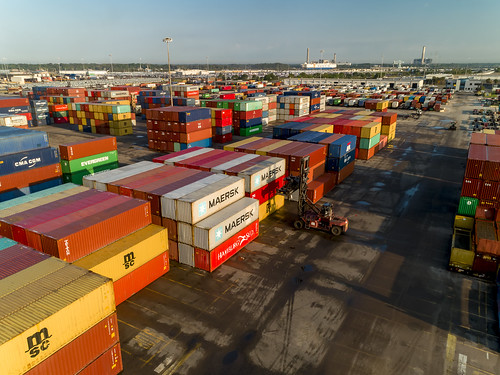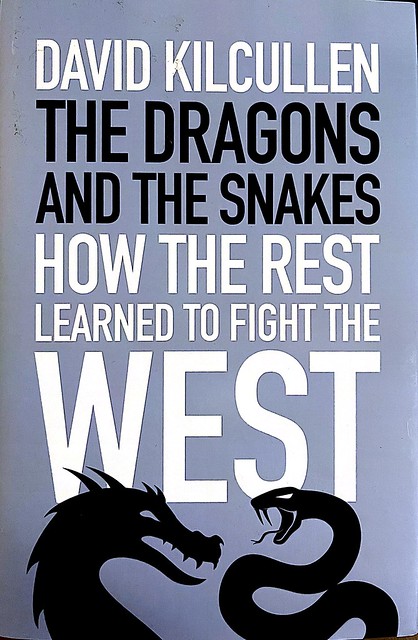The rundle as a term was popularised by business academic Scott Galloway.
It means ‘recurring revenue bundle’. In the technology world bundling meant concealing the real price and value of a product, and or maximising leverage from one industry into another. Here are two bundle examples:
- Mobile carrier combined text, data and call plans were originally designed to make it harder to compare one carriers offering with another. That was supposed to reduce customer churn because it was like comparing apples and oranges, rather than voice minutes, cost per text or cost per MB of data used
- Microsoft integrated its web browser in with its operating system Windows. This meant that life was appreciably harder for Netscape to build its web browser business. Web developers in large corporates optimised their websites for Internet Explorer. Western Mac users like me couldn’t use online banking. Korean Mac users couldn’t get online because they couldn’t verify their identity. Korean cybersecurity was based on a common identity platform that relied on Microsoft ActiveX – which got hacked by North Korea….
Back to rundle
Remember the ‘recurring revenue’ bit?
The classic example of a rundle that Scott Galloway uses is Amazon Prime. A one-off annual payment made by Amazon customers for free postage. There are also some ancillary benefits such as content from the Amazon Prime Video service. But Amazon Prime has a secondary effect, Prime customers spend more with Amazon over a year. This made increased profits for Amazon and less profits for its competitors, further strengthening Amazon’s hand. By 2019, 82 percent of US households have an Amazon Prime membership.
Another example would be Apple’s service businesses:
- Apple TV+
- iCloud+
- Apple Music
So what’s the Korea connection?
The rundle in Korea story started with a flower market.
The Seoul wholesale flower market. The first thing that you need to know about Korean flower sales is how small they are. Here’s a rough and ready industry comparison. On average per person, per market on an annual basis:
- The UK sells about $150 worth of flowers per year, per person
- Japan sells about $50 worth of flowers per year, per person
- South Korea sells about $15 worth of flowers per year, per person
The first week in January meant that the trade was starting to get back to normal. Imports of flowers from around the world had started up again as foreign businesses reopened from the Christmas break. This is when things started to go weird. Wholesalers claimed that an online-only mail order flower company was cornering the market across a wide range of flowers driving prices up. The company that they alleged was doing this was Kukka. According to their allegations, Kukka had managed to get a wholesalers licence so that the could bid directly on the spot market for flowers. There is some anecdotal evidence that this drove florists already operating on meagre margins into the wall.
At the time, this story didn’t make the local Korean media. Why? There are a few hypotheses:
- Korean journalists weren’t interested because Koreans don’t buy that much flowers
- Korean journalists couldn’t get enough sources to make the story fly
- Korean news media publishers tend to be leery of stories that involve large corporates. What the Koreans call chaebols, unless they can’t really ignore the story any longer
So why would Kukka have allegedly done this now? A few changes happened at Kukka the previous year. At least one of the founders left, a new management team was put in place and Kukka signed up to be part of T-Universe in August 2021.
SK Telecom officially launched T Universe at the end of August last year with a number of subscription services. Think of T Universe as a platform for bundles. It encompassed a number of Korean and international brands into rundles:
- Amazon Global Store: remember that Amazon Prime won’t cover buying items on Amazon Japan or US? Well for $7.20 per month Koreans can get an Amazon Prime like free shipping. Frankly that would scare the crap out of my bank manager, given the amount of vinyl records, Blu-Rays and books that I would be buying
- Starbucks: unlike most of the rest of the world, Starbucks isn’t the cock of the walk in Korea. It has a range of fierce domestic and international competitors in Korea. Koreans are big coffee drinkers and pay more than people in the UK for their coffee to go
- Paris Baguette: despite the name, this company is as Korean as Shin spicy ramen noodles. Think of it as falling somewhere between Pret a Manger and Paul in terms of its offerings.
- AIA insurance: AIA is an American-founded Hong Kong multinational insurance and finance corporation. It is the largest public listed life insurance and securities group in Asia-Pacific. It formerly used to be part of AIG
Kukka is also part of these subscription plans with consumer being able to get 9000 Korean won vouchers every month.
SKT
SK Telecom (or SKT as its often known) is a vast business in its own right and is part of an even larger group SK.
SK or as it was originally known Sunkyong Group started off in textiles and then became vertically integrated from petroleum to polyester fibres. Now the business covers:
- Construction: aka SK Ecoplant does a wide range of projects across oil and gas, chemical plants, power generation and infrastructure, environmental protection, industrial buildings, civil engineering and housing
- Pharmaceuticals with a focus on drug discovery and development
- Chemicals also known as SK Innovation. SKC specialises in making polyester films for LCDs and solar cells.
- Energy from oil and gas to electric battery production
- Telecommunications
- Trading and services: loyalty schemes (similar to Tesco Clubcard or Nectar points), a wedding consulting firm and an IT services provider with a particular focus on mobile commerce products. Their US arm launched Google Wallet
- Semiconductors. SK Hynix is the world’s third largest semiconductor manufacturer
Even SKT on its own is vast in its own right
- Mobile carrier
- E-banking and mobile payments
- E-commerce platform (Shopify analogue with a loyalty programme)
- Nate online portal (think Google services but Korean)
- Satellite communications
- Broadcast networks
- Cable TV and brandband
- T-Map (an Uber like service in partnership with Uber)
- Dreamus: the people who make the Astell & Kern music players beloved of digital hi-fi enthusiasts
Market distortions
SKT brings a number of strengths to the T-Universe rundle series.
It already handles 100,000,000 customer service calls a year
- A huge existing customer base
- CRM software and marketing data-mining expertise
- It has the scale to bring on a 1,000 (sales) consultants to just focus on growing and upselling T-Universe
SKT also doesn’t care about margin at the moment, instead focusing on market making:
“Instead of a profit margin, we are thinking about expanding customer services and believe that new business models will emerge in the process. Margin is not a priority at this early stage,” Ryu said.
SKT executive Ryu Young-sang quoted in the Korea Times: SKT to boost commerce biz with subscription platform (August 25, 2021)
All of which is likely to mean a bump in potential customers for flowers, that probably haven’t bought flowers previously. It is easy to see how this rundle could create a market distortion. For businesses like Starbucks and Paris Baguette this would mean reduced margins on higher foot traffic, nothing that they couldn’t manage.
However in a smaller market scenario like flowers, things could get more interesting. Huge demand from new customers that Kukka would be obliged to fulfil at ANY cost, because being sued in a Korean court by a chaebol would be disastrous.
Korean business environment
Korea is a relatively unique business environment. A few large businesses drive the country. You can literally live a Samsung life:
- Work at Samsung
- Shop at Shinsagae
- Commute in your Samsung car
- Stay in a Samsung hotel paid for with your Samsung card
- Watch entertainment from CJ on your Samsung TV, tablet or phone
- Ensure your safety with Samsung insurance for your Samsung built apartment and should you feel ill go to a Samsung hospital
Online brought additional pressure to large businesses. Internet giant Kakao moved from internet media and communications to taxi bookings and mobile payments. Korean banks feeling under threat have moved into online services. So it was only a matter of time for SKT to build its rundle series for consumers to pick and choose from. Unlike many businesses (Apple and Amazon) who have moved from a transactional to a hybrid transactional and recurring revenue model, SKT was always a recurring revenue model because of its sector. So the only way for it to grow would be to expand the number of sectors that it got recurring revenue from with its ‘subscriptions of everyday things’ in T-Universe. SKT and the flower industry (let alone Kukka) look like apocryphal story of a hippo and a chick sharing the same bed.




